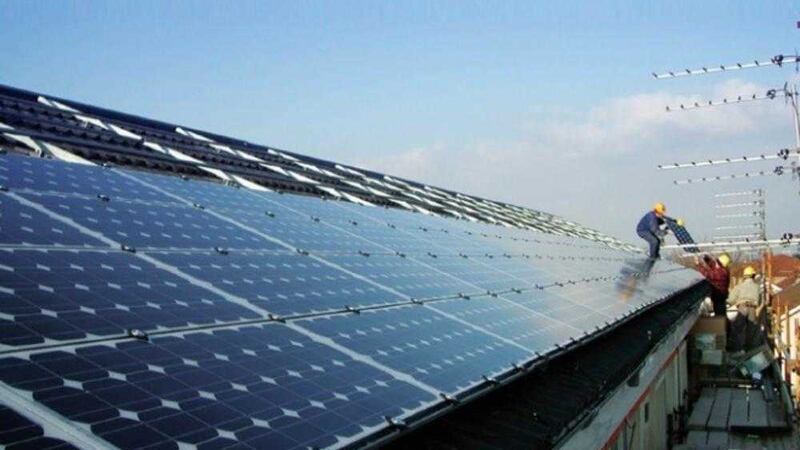THE Irish Green Building Council (IGBC) wants builders and the public to educate themselves about the benefits of buildings designed to help the environment.
During World Green Building Week 2015 recently, the Republic-based body, which has a network of over 80 green building organisations spanning the entire built environment industry, held a series of events around the theme ‘Powering Positive Change’.
On a global level, the week is organised annually under the umbrella of the World Green Building Council, which is represented by national bodies in more than 100 countries, representing over 27,000 organisations.
The aim is a simple one, according to WGBC chief executive Terri Wills, to improve people’s lives and help tackle climate change by encouraging a sustainable construction industry from the foundations up.
“Green building today generates significant economic, social, health and wellbeing benefits. For example, simply improving a building’s air quality can increase employee productivity by 11 per cent.
“Also, as buildings comprise 30 per cent of global greenhouse gas emissions, green building can dramatically improve our lives in the future by reducing emissions and the related risks from climate change, enabling people and planet to thrive together,” says Terri.
In Ireland, IGBC executive director Pat Barry says that the residential and commercial/public sector buildings account for the majority of our energy use. According to the council, energy inefficient homes are not only expensive to heat but can also damage the health of their occupants. Cardiovascular and respiratory diseases, like asthma, can be caused or worsened by living in cold conditions while fuel poverty can affect mental wellbeing.
On a wider level, improving building sustainability would reduce our energy dependency and help the entire island achieve its CO2 emission reduction targets.
The IGBC wants consumers to “look for quality” when building or renovating their homes, with Pat saying: “Why do we have a different attitude to quality when it comes to building or renovating our homes? Our homes are something that are supposed to last a hundred years and that we intend to pass on to our children. It is even more important that we demand quality from our designers and builders. A ‘Quality home’ is one that maximises our sense of wellbeing, has low running costs and is kind to our planet.”
As part of the EU-funded project, QualiBuild the IGBC is developing an E-book to act as a guide for consumers when they are talking about quality and sustainability with their tradesmen.
According to the IGBC’s tick-list, a Quality home means very low running, transport and maintenance costs, is efficient in terms of the use of land, water and energy and built with healthy materials that provide good sound-proofing, air quality and excellent daylighting. The developer should also provide after-care. The e-book will be released shortly. You can learn more about the IGBC on www.igbc.ie.
In Northern Ireland, which marks Energy Awareness Week 2015 on October 24-31, the Housing Executive’s energy conservation manager Noel Rice says the process of installing solar photo voltaic (PV) systems in 1,000 of its homes across the region got underway last week in Newtownards and Bangor.
Carryduff-based firm Saliis Ltd has been tasked with installing the solar panels in a project that is worth up to £5 million to the north’s economy and is based on the ‘rent a roof’ model. Ultimately it means tenants could save up to £200 per year on their energy bills.
As Northern Ireland’s designated Home Energy Conservation Authority since 1996, the NIHE is responsible for identifying measures that are “practicable, cost-effective and likely to result in a significant improvement in the energy efficiency of the residential accommodation”.
The installation of the solar PV panels on its homes is one initiative designed to help reduce carbon footprint, save its tenants money and combat fuel poverty.
Noel says that over the years the NIHE has come to appreciate the numerous benefits of investing in energy efficiency, including greater warmth and improved comfort, which is “particularly important for the elderly, people with disabilities and young children”. He also cites lower fuels bills which lead to more disposable income for householders, less fuel poverty, a reduced need for maintenance caused by dampness and condensation and increased home values.
The wider benefits include less damage to the environment by reducing carbon dioxide, smoke and sulphur dioxide and the creation of jobs.
“Energy efficiency schemes create work for manufacturers, suppliers and installers of products such as energy efficient boilers, insulation products, etc,” says Noel.
To learn more about the work of the NIHE visit www.nihe.gov.uk.








